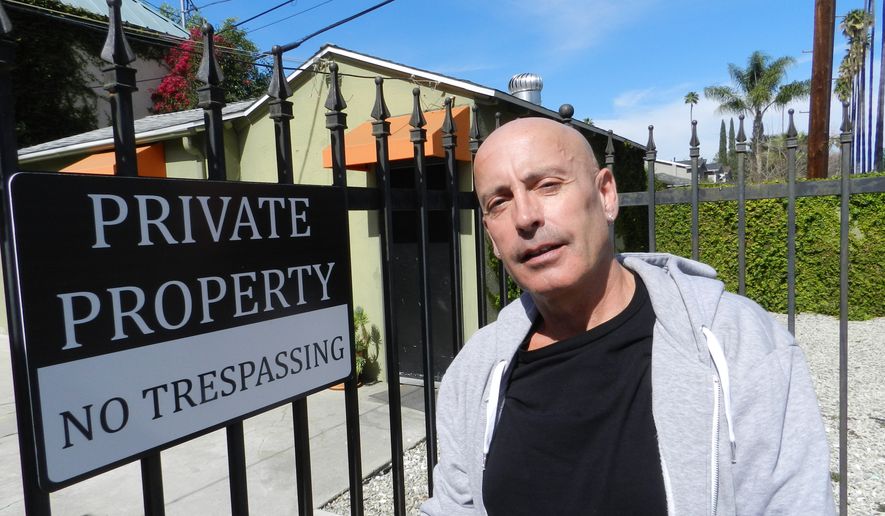There are three sides to every story: yours, mine and the truth that lies in between. Such is the case for 1980s synth-pop trio When in Rome, the band best known for the megahit “The Promise.”
In February we ran an interview with Michael Floreale, the keyboard player of the original band, who continues to tour and record with a version of the band dubbed “When in Rome II.” Legally, he owns the band’s name, which he trademarked after the original lineup parted ways — his side of the story. That interview triggered an angry voicemail from When In Rome’s original lead singer, Clive Farrington, who continues to tour the world with the trio’s other original member, Andrew Mann. Mr. Farrington wished to dispute Mr. Floreale’s claims.
In the interest of fair play, Mr. Farrington weighed in with his truth behind When in Rome’s history, that irrepressible hit and why there is a battle of the bands.
Question: Why did you decide to call the paper after the When in Rome II story ran?
Clive Farrington: The reason why I wanted to do this, and I wanted to do this for a while, is to tell my side of it.
Q: How did the original When In Rome come together?
A: It came out of a band I was in called Beau Leisure. That band went their separate ways, but Michael Nuttall and I stayed together and started writing songs for a new project. Andrew Mann was a punk poet. He would support us as an opening act. Mike and I were writing together but we were stuck for a lyricist. We thought, “We know a poet.”
Q: You call him Micheal Nuttall but he goes by Michael Floreale.
A: I gave him the name. We were in the studio at my mom and dad’s house and we went into the house for a coffee break. My mom was eating a box of chocolates called “Floreale.” I didn’t like the name Nuttall for a pop star.
Q: Why do you think the song “The Promise” became as big as it did?
Q: I read the interview that Mike did with you, and he said it was the lyrics. Which is weird because of the stuff he is doing now trying to stop Andrew and I from performing as a band. He mentions the lyrics. It was myself and Andrew that wrote the lyrics, not Michael.
Q: Why did the band break up in 1991 after one hit song and one album?
A: Michael said that the band broke up. Untrue. Michael and I were not getting along. I was still friends with Andrew. In 1991 we fired Mike from the band. His last words to Andrew and I as we were leaving his house in Manchester were, “You will rue the day!”
After that we played a month in Brazil with new player [and had] a great time. We come back to the U.K. and it had still fizzled out. There was no call for When in Rome.
Q: Did you and Andrew ever officially end the band and break up?
A: No. Absolutely not. Nuttall said we retired. We never did. You don’t retire when you once had a hit record. There are periods of inactivity.
Between 1992 and 1999 there were no active versions of When in Rome. In 2003 I get a phone call from Mike out of the blue. He said, “I’ve moved to Dallas and they want to use ’The Promise’ in a film.”
Q: That was “Napoleon Dynamite”?
A: Yeah. Every other day he was phoning me, negotiating the deal.
We all got a third of the writing royalty. “The Promise” was one of the ones that was actually a pure collaboration with all three of us. The strangest thing about this is Mike is rescinding all this now. He tells everybody he talks to that he wrote everything. We [Mr. Farrington and Mr. Mann] were lucky to be there. His puppets.
The film gets released and I never hear from Michael again. It’s a big movie and reignites our career. Agents are looking for the band again. Rob Juarez, who is now my agent, contacted Michael because he was in Dallas and the easiest one to contact. He asks if he can put the band back together to tour. Mike tells him, “No. The lads can’t sing. They never could sing. The mimed everything on the first tour.” He told the agent that we retired from music.
We don’t talk to each other. This agent took him on his word.
Q: How was Michael able to assemble a new band without your permission?
A: He never asked me. He emailed Andrew. Andrew is a very easygoing guy. He does not like any confrontation. Mike knew that if he asked Andrew whether he could do a few shows (with a new lineup), Andrew would say yes. Little did we know that it was going to explode again. And Michael jumped on it. He could have contacted both of us. He didn’t want to pay to fly Andrew and I over here.
Greed.
Q: He also trademarked the name?
A: He didn’t trademark the name until 2010. We paid to oppose the trademark, but because we’re not lawyers, we don’t really know how to do it properly. So they give it to him without prejudice, which means I can’t oppose him at any further date.
But Andrew can, which is what we’re going through right now. I get these emails from Mike saying, “How dare you do this! Nobody cares about When in Rome!” If no one cares, why the hell is he fighting us? Why does he threaten promoters when Andrew and I get booked? Why does he call immigration lawyers when I’m trying to get a visa?
The best thing for When in Rome is that all three of us should get back together.




Please read our comment policy before commenting.